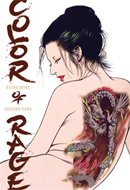   |
Author: Kazuo Koike
Manga-ka: Seisaku Kano
Publisher: Dark Horse
Rating: Mature (18+)
Released: May 2008
Synopsis: “Two slaves free themselves from a slave ship, one a Japanese man, the other an African American. After escaping they find themselves on the shore of Edo-era Japan, a society with a strong caste system, isolated from the world. How will the Japanese people perceive this giant black man, how will they survive? But first things first, how will they get these shackles off their feet?”
This was an interesting book to read because the general intent of the manga-ka was so apparent that it felt almost too forced. While attempting to show multiple cultures from a unique perspective, instead it felt like one layer of stereotype over another. While the story being written in the seventies does cause me to give it some more patience, the final result seems a little misinformed, and mostly overzealous in its execution, but still with presumably noble intentions.
The character of King is a bit of a confusing one and I won’t lie when I say that I don’t feel I can give much insight to how ‘believable’ I find him versus what is a more factual representation of this kind of fictional character. He’s an African slave who escapes his captors during a shipwreck that ends him up in Japan. He can’t speak their language and doesn’t know their customs so he relies entirely on George. King has a strong sense of morals rooted in his own experiences as a slave so he feels responsible for helping those they come across who are oppressed.
At the same time, certain situations seem to throw King’s personality for a loop. In one such moment, he strips a woman naked in the street and crams dirt in her mouth after she shows nothing but interest in his appearance and ability. She was probably the most accepting of his coloured skin in the entire book past George, so it seemed an odd paradox that he would then treat her more harshly than any other, and shows no remorse. Doesn’t help the story any that she’s the only female to have a purpose past sexual-object and thus meets an unnecessarily brutal death. On that note, King also has some oddly rabid reactions to lust which I couldn’t help but laugh at. I’m not going to deny that a person’s lust when denied it for long periods could get messy, but the grunting, howling, tree throwing and head bashing seemed a bit much to happen out of nowhere.
I had much fewer thoughts on George who was just a well-informed Japanese native wanting to get home and make it there with the friend he’s made in King. They’re dedication to each other was admirable, if not a little lacking in character-building conflict, and I did like some of the education-of-sorts I received through his explanations to King on proper methods of living through Yakuza channels. Needless to say, he’s a very talented fighter for no explainable reason and together with King can take out any force no problem for sake of continuing the story.
Seisaku Kano’s artwork was suitable for the story and was certainly familiar artistic terrority for the era it was drawn in. The rough lines and more realistic anatomy of the characters and setting allowed it to paint a darker and more life-like portrait of the times it portrayed and in some odd way, complimented the often choppy story in a way that made each seem more excusable for their out-dated handling of the subject matter.
Ultimately, Color of Rage proved to be an intriguing read on the grounds that its a well-intended story that tackles a subject that I’ve rarely seen done by a manga artist. On the other hand, I found the cut-and-dry nature of the storytelling rather cheesy and not as compelling as it wanted to be, and while the art wasn’t bad, it didn’t offer much else but platform for the story. While I give props for the intent, I unfortunately found the book as a whole lacking in much else worth mention. The story was choppy and painfully episodic and it all felt too overdramatic for its own good. It made for an entertaining one-time read on basis of its premise, but past that Color of Rage is an easily forgettable experience past reflection on its mildly explored social stigma.
Review written November 20, 2008 by Lissa Pattillo.
Book purchased from gaming/comic store, GameZilla


 Follow
Follow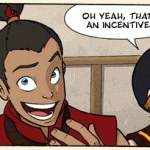

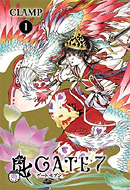





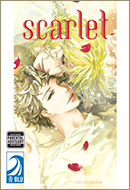








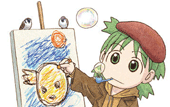









[…] Disciple checks out vol. 3 of Kaze no Hana and vol. 4 of Alice on Deadlines. Lissa Pattillo reads Color of Rage, vol. 4 of Freak: Legend of the Nonblonds, Shards of Affection, and vol. 5 of Moon Boy at […]